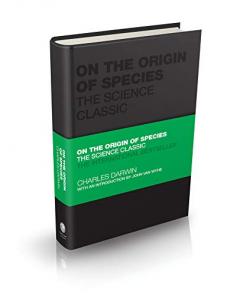In December 1831, Charles Darwin boarded the HMS Beagle, accompanying her crew on a five-year journey that crossed the Atlantic Ocean to survey the coasts of South America. As the expedition's geologist and naturalist, Darwin collected evidence from the Galapagos Islands and other locations which prompted him to speculate that species evolve over generations through a process of natural selection. In 1859, Darwin published On the Origin of Species, a work of scientific literature considered to be the foundation of evolutionary biology. His revolutionary work presented evidence from the Beagle expedition as well as from years of subsequent research and experimentation.
Written for non-specialists, Darwin's book gained widespread interest from the scientific community, religious leaders, politicians and the general public. The theory Darwin presented in his book quickly became the subject of heated debate and discussion. Now accepted by the scientific community, Darwin's concepts of evolutionary adaptation via natural selection are central to modern evolutionary theory and form the foundation of modern life sciences. Perhaps the most transformative scientific volume ever published, this volume of the first edition of On the Origin of Species:
- Outlines Darwin's ideas, scientific influences and the core of his theory
- Details natural selection and address possible objections to the theory
- Examines the fossil record and biogeography to support evolutionary adaptation
- Features a "Recapitulation and Conclusion" which reviews key concepts and considers the future relevance of Darwin's theory








